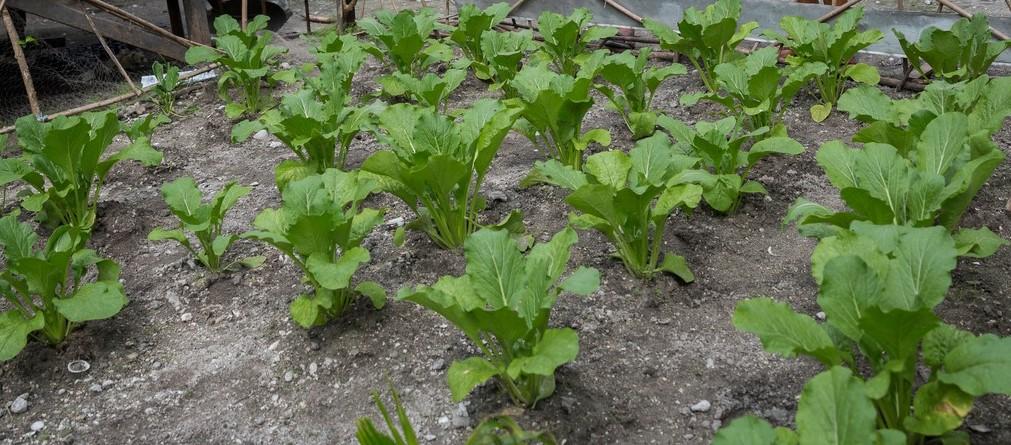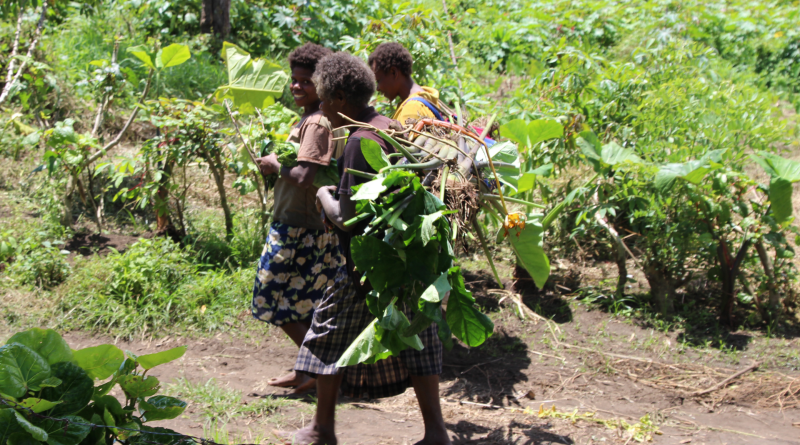To help improve farming practices and to strengthen resilience in the face of the current changing weather patterns, the Pacific Community’s Land Resources Division (LRD) has invested in conducting soil and crop management trainings for farmers across the Pacific.
LRD’s Agricultural Scientist, Dr Ellen Iramu, said “Most people think that soil is dead and treat it as dirt, but soil is really a living medium, full of millions of living organisms, that keep it healthy.”
A series of virtual soil health trainings were conducted during the year due to the COVID-19 pandemic travel restrictions, providing participants with knowledge on soil management and the importance of keeping their soil healthy. Technical experts from SPC and partner academic and private institutions were part of this training that allowed knowledge and experience sharing with atoll nations such as Kiribati and Tuvalu.
The trainings delivered included soil health management, seed systems and plant health clinics. A series of seven trainings were further conducted for Tuvalu stakeholders ranging from local farmers, backyard gardeners in Funafuti and outer islands (Vaitupu, Nui, Niutao, Nukufetau, Nukulaelae, Nanumea and Nanumaga). The trainings were attended by a cross-section of participants including women and youth groups.
Dr Iramu explained, that one of the many challenges Pacific atoll countries face is the production of good quality food to feed their people both on the main islands and in the outer islands. Food production challenges on atolls are further influenced by additional factors, including a narrow genetic base, poor control of pests and diseases, poor soil conditions, limited water availability, climate change impacts, and fading traditional knowledge.
In addition to the current virtual soil health trainings, SPC in 2019 launched its Atoll Agriculture Programme (EAAP) which aims to address the atoll agricultural challenges and support resilient livelihoods and food and nutrition security.
The programme is in line with SPC’s Strategic Plan to develop and promote sustainable practices geared toward atoll specific needs. These include the promotion of climate smart technologies, crop varieties and improved livestock breeds suitable for atoll conditions, as well as marketing of locally produced foods.
Lastly, Dr Iramu is leading the team that is scaling up food cube trials under the Tuvalu Food Futures (TFF) to promote urban backyard gardening using local organic materials. This initiative was in collaboration with DT Global and Live and Learn, with funding support from Australian Department for Foreign Affairs and Trade. The food cube trial was conducted in a low-lying atoll environment to investigate whether gardens could be established using only on-island resources and compost.
With the successful outcomes in Tuvalu and Kiribati, the food cube technology trials have been extended to urban Fiji, at the SPC LRD Narere campus, Fiji National University’s College of Agriculture, Forestry and Fisheries at Koronivia, Sigatoka Research Station and Legalega Research Station in Nadi.
“These SPC led activities are linked to the DFAT funded atoll soil health and Pacific soil management projects,” said Gibson Susumu, the Programme leader for Sustainable Agriculture at LRD. “SPC engagement in the food cube technology has provided LRD with the opportunity to leverage its other ongoing projects to complement the food cube activities on research, training, and agricultural development.”
The month-long virtual training for Kiribati and Tuvalu included presentations from LRD programmes such as the New Zealand funded Pacific Seeds for Life, the Pacific Awareness and Response to the Coconut Rhinoceros Beetle (PARC), and Para-vet training under the EU funded Pacific Regional Integrated Food and Nutrition Security Initiative (PRISCO-19) project.
This feature was published at SPC on 16 November 2021, reposted via PACNEWS.




